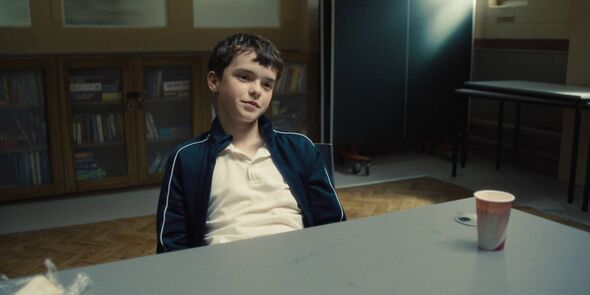Expert speaks out about how Netflix's Adolescence could 'inspire' incel based violence
Netflix's hit series Adolescence has caught worldwide attention, and now an expert has discussed whether the show could inspire incel violence or attacks.

An expert on 'incel' culture has voiced concerns over Netflix's popular series Adolescence, and how it portrayed incel culture.
The hit series, which debuted in March on Netflix and swiftly climbed the ranks to become the third most-viewed English-language series ever on the streaming giant, delves into incel culture and its influence on youth. The four-part miniseries revolves around the fallout from the death of a teenager named Katie (Emilia Holliday), leading to 13 year old Jamie (Owen Cooper) being implicated in an unforeseen horrific act.
The narrative zeroes in on the accused boy's father, Eddie Miller (Stephen Graham), his wife Manda (Christine Tremarco), and their daughter Lisa (Amélie Pease), each wrestling with their accountability for Jamie's actions in distinct ways. The psychological drama, conceived and set in England, was filmed in one continuous shot and has been praised and acclaimed worldwide and even been asked by fans for a second season.
All the musicians supporting Bruce Springsteen amid bitter Donald Trump feud
Aubrey Plaza wows in first red carpet at Cannes Film Festival since death of husband
However, since the series' release, there have been growing concerns that it might trigger 'copycat' violent acts, similar to the 2014 rampage by Elliot Rodger. Rodger, 22, murdered six students from the University of California, Santa Barbara, and wounded 14 others before taking his own life.

In a letter left behind for his parents, he revealed his motive - his loathing for women and his miserable existence as an incel.
Now William Costello, an expert specializing in incel studies at the University of Austin, expressed to The Sun that while onscreen depictions of incels might make for compelling TV, they could potentially exacerbate the issues faced by this community of young men.
He elaborated: "One peculiar finding is that there's not as much incel violence, as you would expect - ideologically motivated violence like Elliot Rodger - compared to other extremist groups.
"In evolutionary psychology, for decades, a very clear trend [has occurred] that whenever you have more single young men in a society, they cause an awful lot of harm, usually going about in gangs.
"They're doing anything they can to elevate their status, to get a mate, whereas now you're seeing rising rates of single-hood, but no corresponding rise in violence," he added.
DON'T MISS...
Netflix's brand new war film slammed by viewers over one controversial detail
Saving Private Ryan dethroned as 'greatest ever war film' by Netflix hit
Angelina Jolie 'planning' to leave the United States after Brad Pitt divorce goes through

While the easy accessibility and prevalence of pornography among teenagers and young adults has been flagged as a concern, it may not always be the issue. In fact, Costello suggests it could serve as a deterrent to violence among young men.
He suggested: "One hypothesis is that they could be sedated by the online world, such as pornography, which would give them a fake cue that they're achieving evolutionary success, the human mind can be tricked fairly easily."
He noted that pornography "could take the edge off", but also conceded that it could be "distracting".
TV series like Adolescence are adding fuel to the fire in incel culture, says Costello, voicing his concerns: "What's very worrying for me is the explosion of attention that the incel topic gets with Adolescence. It ticks all our boxes for cognitive attention."
Sharing further insights, he remarked: "I think society as a whole, we can understand better the nature of incel psychology, makeup of the group, level of stress and their mental health. In the media, we're just seeing incels as this rabid misogyny, toxic masculinity, one-dimensional analysis."
Costello also observed that the incel storyline in entertainment acts as 'a button pusher' for audiences, and he expects an increase in such narratives in future TV dramas and films. However, he cautions against policymakers using media portrayals as a basis for legislation regarding incel groups, labeling such reactionary measures as "knee jerk".
